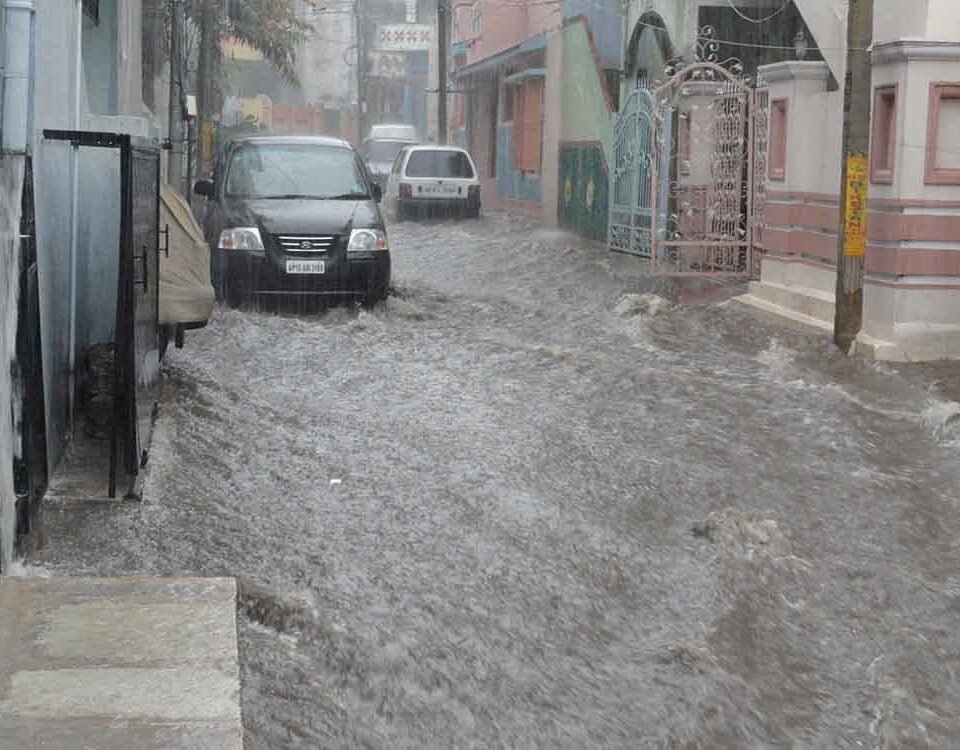Floods are unexpected and risky natural disasters that affect communities worldwide. It doesn’t matter if you live close to a river, the coast, or an area that gets a lot of rain – knowing about possible floods is important to keep yourself and your things safe.
This article will discuss nine easy ways to determine if a flood is happening near you. When you know how to answer the question, “Is there a flood near me?” you’ll learn to make smart choices that can help when there’s a flood.
Table of Contents
1. Weather Reports and Alerts
One of the best ways to know about floods is by checking the weather forecast. You can watch the news on TV, use weather apps on your phone, or go online to websites to know how much rain is coming and if there might be floods.
The experts who study the weather, called meteorologists, look at different things like how much it’s raining, how high rivers are, and how the air is acting to guess if floods might come. They know the signs of an upcoming natural disaster. When you pay attention to these forecasts and warning signs, you can get ready for a flash flood and do things to stay safe with your family.
2. Emergency Alert Systems
In some places, special alerts can come to your phone when there’s terrible weather, like floods. These alerts are sent by people in charge, like the local leaders, who tell you immediately if there might be a flood and what you should do to stay safe. Using technology like this can help you know more about the inclement weather or if there’s a flood nearby and make you feel safer when things get dangerous.
3. National Flood Monitoring Services
Sometimes, the government runs services that keep an eye on floods. They give you the latest information about how high rivers are, how much rain falls, and if there might be a flood. These services show you a big picture of what’s happening with floods where you live.
The government and experts who know about the weather use special tools like sensors and pictures from satellites to figure out if floods might happen. Using these services gives you an extensive view of what’s happening with floods. This helps you make good choices and prepare for floods, along with the people in charge of keeping everyone safe.
4. River Gauges
River gauges act as vigilant sentinels along waterways, measuring water levels in real time. These instruments play a pivotal role in flood prediction by providing accurate and up-to-the-minute data about rising water levels.
Many river gauge networks make this data available to the public, allowing you to track water levels in rivers and streams near you. By monitoring this information, you can assess the potential risk of flooding and make informed decisions regarding evacuation, property protection, and the safety of your loved ones.
5. Community Social Media Groups
In times of uncertainty, local communities often come together to share information and support one another. Social media platforms serve as valuable hubs where residents can share real-time updates, photos, and observations about flooding in their vicinity.
It’s best to join a local community group or follow relevant hashtags to tap into a network of firsthand experiences. By actively participating in these groups, you can contribute to the collective knowledge about flood conditions and receive timely updates from your neighbors, promoting unity and fostering a stronger community response during flood events.
6. Local News Websites
Websites that belong to your local news are good places to get information when there’s a flood. These websites have the latest and complete info about floods, like which areas are in trouble, closed roads, and how the people in charge are helping.
On these websites, you can see accurate reports, pictures, and videos showing how the flood affects where you live. Looking at the news on these websites helps you know a lot and gives you the power to make intelligent choices when a flood happens. You also become a part of your community’s plan to be ready and get better after the flood when you use these websites.
7. Smartphone Apps
Many phone apps can help you know about floods, the weather, and emergency alerts. You should get a good app about what’s happening where you live. These apps are easy to use and show you how the weather will be if there is a flood or emergency.
When you get a good app made for floods where you live, you can learn a lot from it. These apps use information from experts about the weather and the government. They tell you everything you need to know about floods. Using these apps is a smart way to stay informed, especially when you’re not at home.
8. Local Authorities’ Websites
Look at your local government’s websites, like the offices that handle emergencies and water. They usually have websites with important flood info, like maps to show where floods might happen, plans to leave if needed, and tips to stay safe. These websites are like centers where you can find maps that show where floods might happen, plans for leaving if you have to, and tips to stay safe.
Using these websites lets you learn a lot about how floods might affect you and what you should do. Checking out these websites helps you know what to do if there’s a flood and lets you work with the people in charge to keep everyone safe.
9. Observing Water Behavior
Sometimes, you can use your eyes and ears to understand floods. Watch for rising water levels in nearby rivers, streams, or ponds. Also, notice if there’s more water on roads and places that are usually lower.
These signs might show that there’s a flood happening. If you want more details on flood zone X, watching for these signs can help you. Just remember, floods can happen fast, so it’s wise to have different ways to know what’s happening.
Staying Informed for Safety: Is There a Flood Near Me?
Knowing if there might be a flood close to where you are. This keeps you and your family safe. You can do this by using weather reports and emergency alerts, keeping an eye on things, and getting information from your community.
Flood situations can change quickly, so it’s best to have lots of ways to know what’s happening. Be careful, and take action to ensure you’re safe during floods.
Did this article help you with your question, “Is there a flood near me?” If so, visit our blog for more content.










